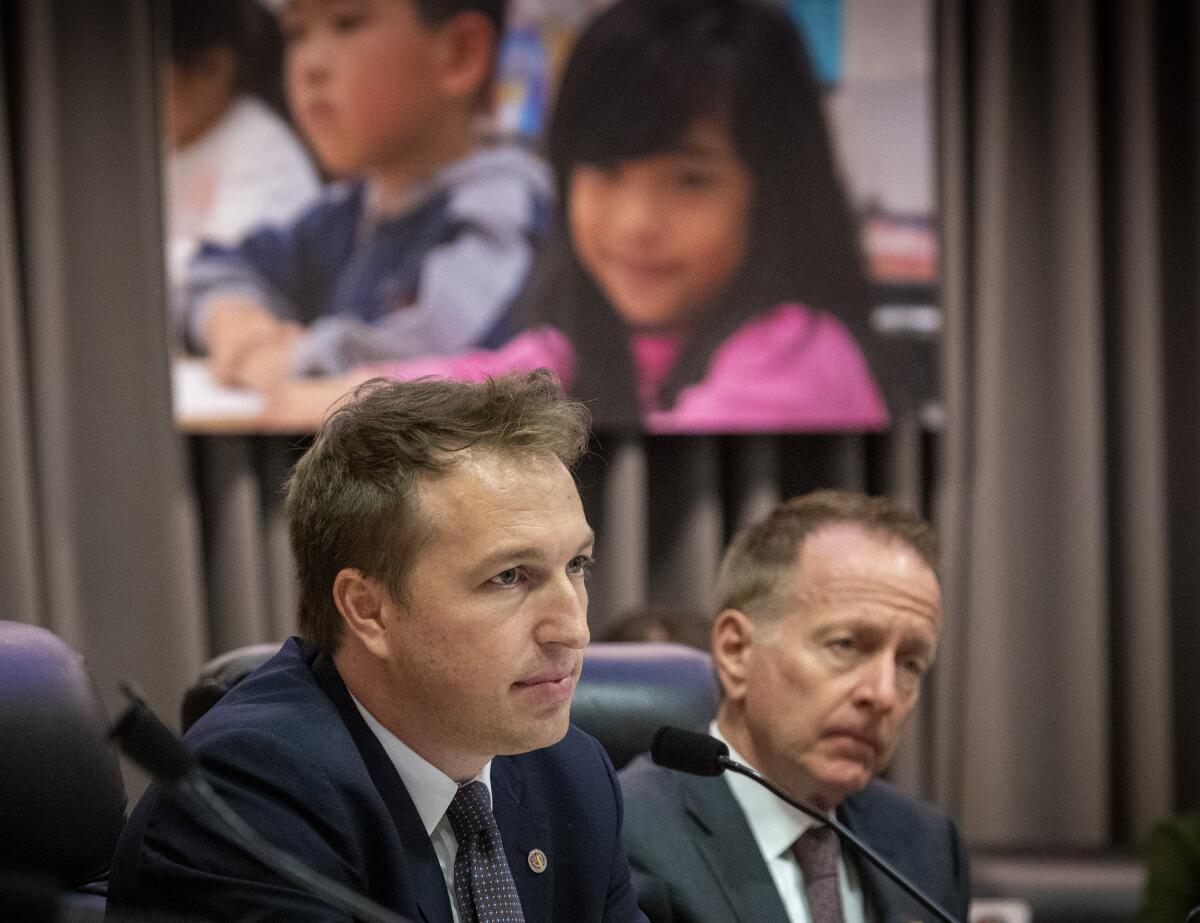Noncitizens voting in LAUSD elections? Bad idea

- Share via
In what’s becoming a mini-trend of sorts, the Los Angeles Unified School District is considering the question of whether to let noncitizens with children in the schools vote in school board elections. A resolution up for debate Nov. 5 would establish a working committee to examine the issues around bringing such a proposal before voters.
The board could save itself time and trouble by doing the right thing and killing the resolution. Though the district should encourage the involvement of parents no matter what their immigration status is, the privilege of voting is one that rightly belongs to citizens.
L.A. Unified is following in the footsteps of San Francisco, which started allowing noncitizen parents of its students to vote in 2018. It didn’t work as planned; fewer than 50 people registered.
But the practicalities aren’t what matter here. We’ve all heard about the checks and balances inherent in a democratic way of government. The ultimate check on government power – exercised by too few people – is the one exerted by the voters who can throw the rascals out if they choose. That oversight rightly belongs to those who are tied to the government in a formal and binding way by citizenship.
Supporters of expanding the vote correctly point out that parents have a special stake in schools, regardless of their official status. (This resolution would explore voting privileges for noncitizen grandparents as well.) But there are many ways for noncitizens to participate in their children’s schooling. They can join and lead the PTA and other parent organizations, serve on advisory committees and sign up with community advocacy groups.
And noncitizens have a big interest in many other aspects of government than schools. The services provided and regulations enacted around healthcare, the environment, transportation and public safety all have direct impacts on the people living here, citizens and otherwise.
In fact, the philosophy behind the L.A. Unified resolution represents a troubling way of viewing voter participation. Voting rights shouldn’t be extended based on who is most directly affected by a particular issue. Voting on health coverage isn’t extended to sick noncitizens; voting on gas taxes isn’t extended to noncitizens with cars. We all have a stake together in how government policy affects people, and ways of influencing that policy to the good. But noncitizens have joined the nation on the understanding that voting is not one of the privileges extended to them; that comes with taking an oath of allegiance when immigrants are naturalized.
The right way to extend the vote to noncitizens is to encourage those here legally to work toward citizenship and to provide a path to citizenship for the undocumented. That would strengthen the state and the nation with a more robust roster of citizen voters.
More to Read
A cure for the common opinion
Get thought-provoking perspectives with our weekly newsletter.
You may occasionally receive promotional content from the Los Angeles Times.









